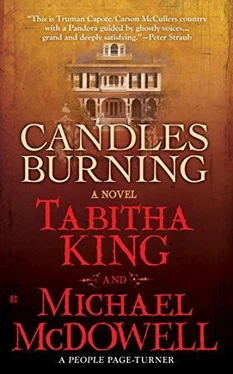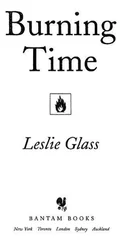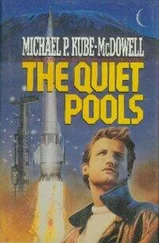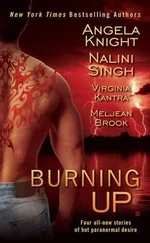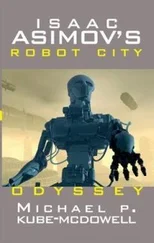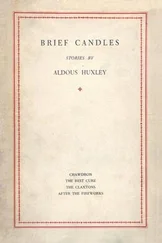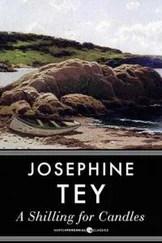Michael had cut off most of his hair, it seems, with a pair of shears he had found in an old shoebox that he found at the back of a crookedy little closet in his room, the one that had been mine. With all those swatches of hair available, Michael had attempted to tape swatches of his hair on the crumbling old paper dolls also contained in the shoebox. When the project was finished, Michael then tried to flush his handiwork down the sink, causing it to clog.
Michael’s curiosity was unsated; he wanted to watch Grady unclog the sink.
While Grady did so, Miz Verlow, having just been informed by Cleonie of what Michael had done, came into the bathroom to scold Michael.
“Paper dolls,” Miz Verlow said scornfully. “Girls play with paper dolls. I cannot abide girls.”
“You’re a girl,” Michael pointed out.
“Little girls,” Miz Verlow clarified.
“You sound mean,” said Michael. “I don’t care if you like girls or not. I don’t like you.”
Flustered, Miz Verlow protested, “I am not mean.”
“Sound it,” Michael said. “Who died and made you God?”
Grady and I agreed the child must have heard the phrase from a grown-up; he was too young to have thought it up himself.
Michael became feverish later that day and what was left of his hair fell out. It grew back in but it wasn’t the same, Grady told me. It was reddish-blond and thick as fur.
It was the last time I saw Grady, who left his bones in a rice paddy three years later.
Reports of Hurricane Ivan hitting Santa Rosa Island brought my time there to mind again, and thoughts of Santa Rosa’s wild beauty insisted on being thought.
An e-mail was in the inbox of an online account that I use only for the most personal communications.
From: FordDakin@FCD.com
To: BetsyCaneMcCall@bcm.com
Hey, Dumbo. I’m feeling sentimental in my old age. I’ll be at Merrymeeting on Wednesday next.
Affectionately,
Ford Cane Dakin
I left for Pensacola the following Wednesday. The airport was open by then but the whole area was still in disarray, some five weeks after Hurricane Ivan had elected Santa Rosa Island and Pensacola as its bull’s-eye. The Route 10 Causeway had fallen in several places and was still under repair. Undermined by storm surge, the Scenic Highway had broken up in numerous places. Everywhere there was still damage evident—the chainsawed trees, the heaps of wood chips, road crews, detours, and debris not significant enough for immediate removal. The easiest way to get to Santa Rosa Island was by helicopter. I had made arrangements ahead of time to charter one. It was waiting with its rotors spinning, the pilot already onboard, when my jet put down its wheels on the runway at Pensacola.
I made an immediate transfer to the helicopter.
Transit by chopper, of course, afforded a grand tour view of the hurricane damage. It is especially shocking to see a bridge collapsed that one has previously driven so regularly as to take it for a permanent feature of the landscape.
Despite the damage, from the air it was still apparent that there had been a lot of development since I left in the late sixties. Though the hurricane had destroyed a portion of that development, evidence of its existence remained in the debris. The chopper pilot spoke through the earphones that we wore, pointing out the beach that Hurricane Opal had created and some other places that had been damaged in previous hurricanes, repaired with beach nourishment and replanted vegetation, and damaged again by Ivan or other storms. The beaches had washed over the roads and after the hurricane, emergency road crews cut through the sand, so that what now existed looked like roads ploughed through snow.
North of Pensacola Beach, the sand covered the road in places and the water had drowned part of it as well. The wall of dunes that had defined the Gulf shore of the island was gone, the shoreline no longer a line at all, but a milky fringe. A shallow pass separated the Fort Pickens end of the island from the rest; Fort Pickens itself was flooded. I knew that it had happened and where it had happened, of course, but it was still stunning. And I had wondered years ago how much the island might be changed by the time I returned.
The roofline of Merrymeeting rose from the sand but its back was broken, and it looked like it might be the keel of the ark. It had long been abandoned. Each passing storm had frayed it or clawed it or kicked it upside the head, but Hurricane Ivan had reduced it to a broken roof.
Merry Verlow died in a hotel fire in Las Vegas. She has never told me why she was there but admits that she started it with a lighted candle that she left too close to a drapery.
How Fennie wept for Merry. Mrs. Mank and I went to Merry’s funeral in Birmingham, where the Verlow sisters had grown up. Fennie’s hair was still that unlikely color and still marcelled. She committed suicide after Merry’s funeral, by overdosing on heroin. Thoughtful of her, Mrs. Mank had joked, as we were already in town for a funeral.
The chopper settled on the nearest solid patch of sand. The pilot let the chopper rotors come to a standstill. I jumped out and ducked away under the rotors.
Where once the sea oats and panic grass held the dunes in place and the shorebirds peeped in the swash, water flowed from the Gulf into Pensacola Bay. Eventually, if this little neonate pass did not silt up, sand would accrete on its corners and new beaches would be created. For now, the sand was a watery desert, strewn with detritus of every kind flung by wind and water. Here a sand-roughened cobalt-glass candlestick, there a sodden cigarette pack, and over there, a black feather. And at my feet, a fragment of cassia.alata var.santarosa. The source of so many of Merry Verlow’s potions. And poisons. How easy it must have been to suborn Tansy to poison the butter on Mamadee’s brioche.
I wondered about the beach mice. They were endangered even before this particular disaster. Still, they had survived so many other storms.
I looked up instinctively.
I see the moon .
But I did not. The moon was not in the sky, and would not be, until the wee hours of the day to come. As I habitually do, I touched the Calliope locket that hung round my neck on a gold chain, as it had for years. It had been my good luck charm, my comfort, all the while.
The pilot, my brother, Ford, came up beside me, his helmet in his hand. Ford brushed his hair back from his forehead with one hand. His hair was thinning. It had been some years since we had crossed paths in the flesh.
He grinned at me. “Calley.”
He looked hale and hearty and prosperous. He looked like a man who enjoyed every bit of his life. No sullenness, no boredom.
I closed my eyes and listened. I heard Ford’s breathing and my own. The water in its permutations, lap and lick, surge and suck, touch and go. The wind tugging and pushing, whistling and sighing. Wings striking in the air, the whip of fish in the water.
Deeper than that.
You owe me . Merry Verlow.
You owe me too . Fennie Verlow. The Echo sisters.
We’ll settle this later . Isobel Dexter Mank.
We can contest it . Adele Starret.
Nothing from Mamadee. Said all she had to say.
So much for the Liars Chorus.
Lord my feet hurt .
You wore your shoes too small, Mama, and the foot cream I massaged into your feet every night kept you on Santa Rosa. Poor Mama.
Put your pants on and let’s go get some more beer. Grady, laughing.
It was instantaneous, wasn’t it, Grady? That deadly death hidden in the tender shoots of the rice?
A long silence.
You are my sunshine. Daddy, from very far away and very close at hand.
“She had him torn limb from limb,” I said, “to make it harder for him to be heard.”
Читать дальше
